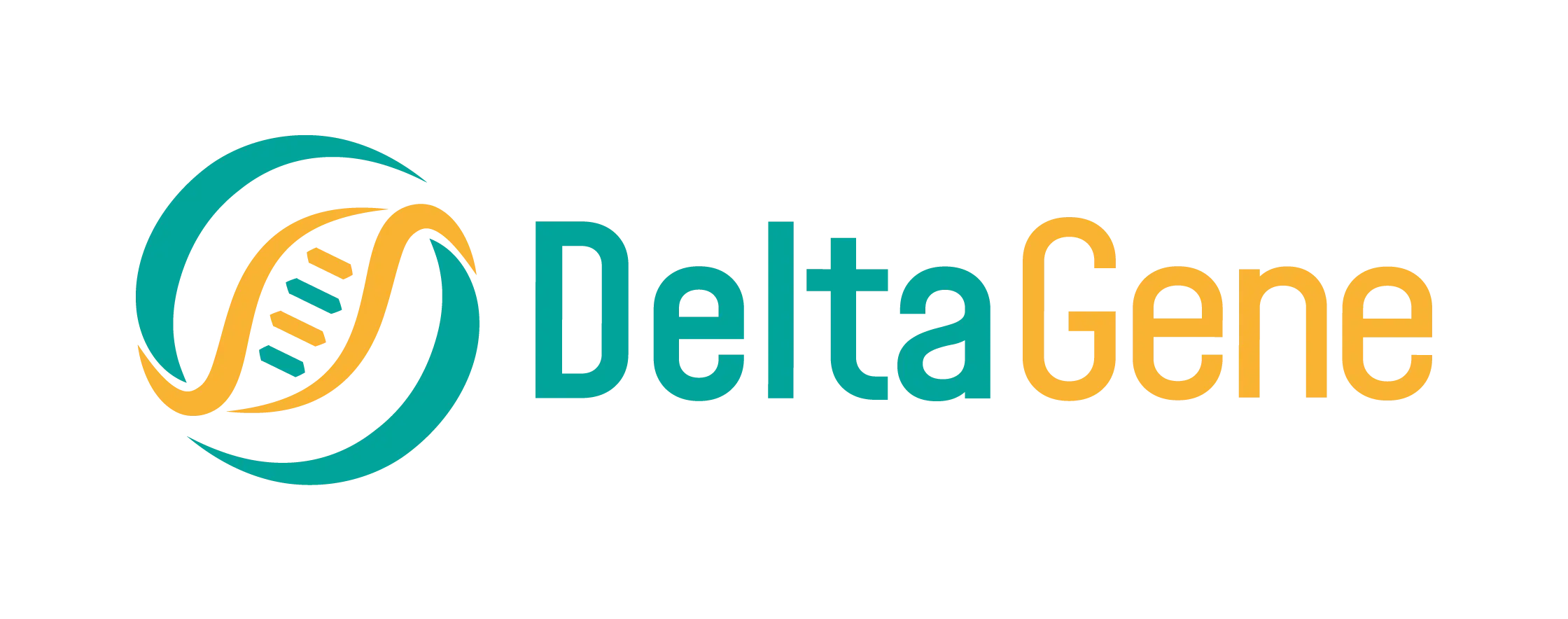Explore the science of modern diagnostics
Recent advancements in molecular biology & technology have enabled us to develop faster, more sensitive, and more accurate methods to diagnose & monitor diseases. Discover the scientific background of DeltaGene’s world-class next-generation sequencing diagnostic technologies.
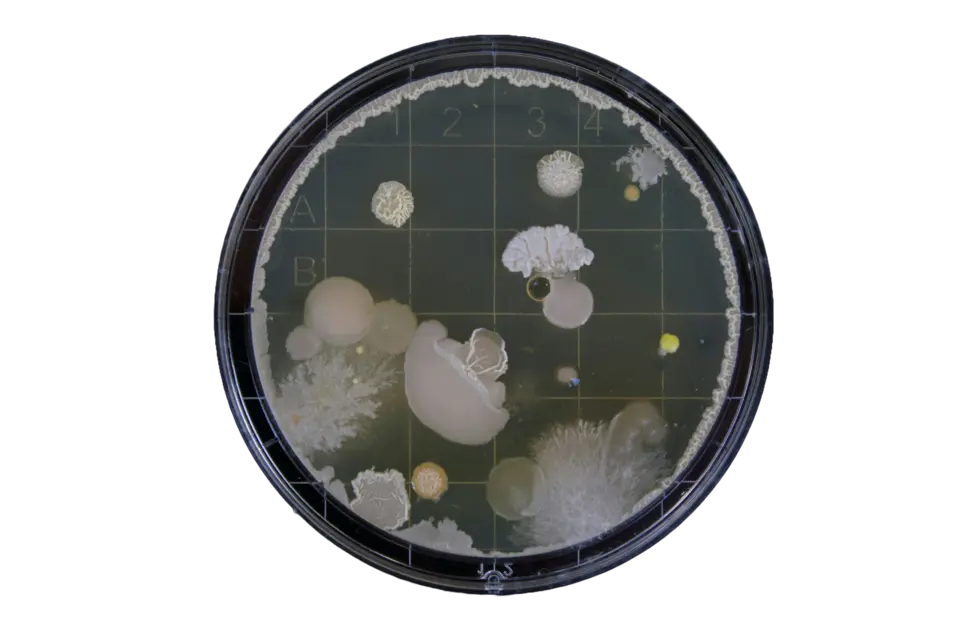
About NGS
Next-generation sequencing (NGS) is a powerful technology that enables the analysis of genetic material from various sources, such as human tissues, environmental samples, or microbial communities.
NGS can be used for molecular cancer diagnostics, as it can detect mutations, copy number variations, gene fusions, and other genomic alterations in tumor samples. NGS can also be used for microbiome analysis, as it can identify and quantify the diversity and abundance of microorganisms in different habitats, such as the human body or the soil. NGS has several advantages over traditional methods, such as higher throughput, accuracy, and sensitivity, as well as the ability to discover novel microbes that are not culturable or have low representation in genomic databases.
NGS can also provide insights into the interactions and functions of the microbiome and its impact on health and disease. For example, NGS has been used to study the association of the microbiome with obesity, autism, cancer, and cancer therapy.
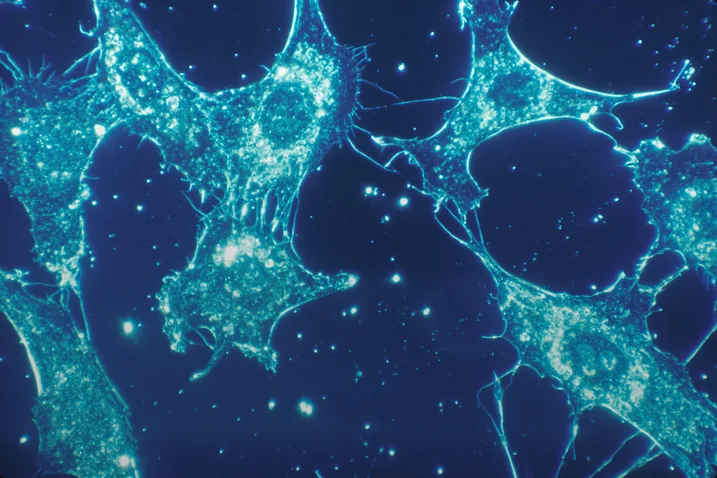
Cancer
Cancer is a disease that occurs when cells in the body grow out of control due to changes in their genes.
These changes are called mutations or variants, and they can affect how the cells make proteins that regulate important functions like cell division, cell death, and DNA repair. Some mutations are inherited from the parents, while others are acquired during a person's lifetime due to exposure to environmental factors, such as radiation, chemicals, or viruses. Mutations can also happen randomly during normal cell division.
Read more
There are many different types of mutations that can lead to cancer. Some mutations cause the cells to produce too much or too little of a protein, or a protein that does not work properly. Other mutations cause the cells to lose or gain a whole chromosome, which is a long strand of DNA that contains many genes. Some mutations affect genes that normally prevent cancer, such as tumor suppressor genes or DNA repair genes. These genes act like brakes or guardians that keep the cells from growing too fast or accumulating more mutations. When these genes are mutated, the cells lose their ability to control their growth and repair their DNA. Other mutations affect genes that promote cancer, such as oncogenes or growth factor genes. These genes act like accelerators or signals that tell the cells to grow and divide. When these genes are mutated, the cells become overactive and produce too much of the growth-promoting proteins.
Not all mutations cause cancer. Some mutations have no effect on the cell's function, while others may even be beneficial for the cell's survival in certain conditions. However, when a cell accumulates enough mutations that affect key regulatory genes, it becomes a cancer cell. A cancer cell can divide uncontrollably and invade other tissues, forming a tumor or spreading throughout the body. Cancer cells can also evade the immune system, which normally recognizes and destroys abnormal cells. Cancer cells can also develop resistance to treatments, such as chemotherapy or radiation therapy, by acquiring new mutations that help them survive.
Our Hereditary predisposition panels consist of carefully selected gene sets to analyze the most common alterations responsible for high cancer risk.
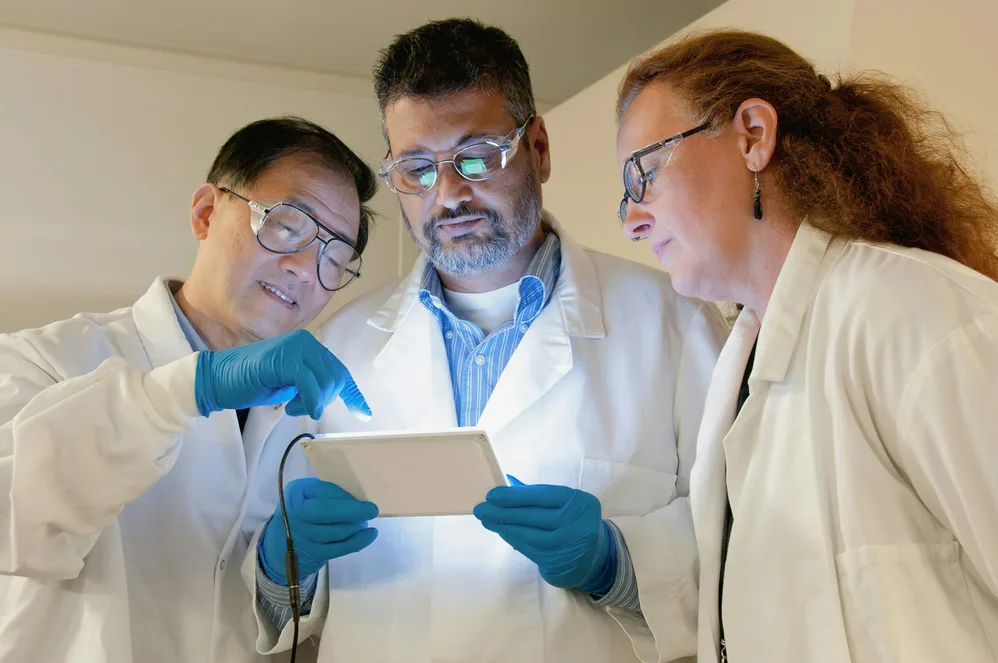
Personalized cancer therapy
Personalized cancer therapy aims to tailor the treatment of each patient based on their specific genetic alterations.
These alterations, also known as driver mutations, are changes in the DNA of cancer cells that give them a growth advantage and drive the tumorigenesis process. By identifying these alterations, oncologists can select the most appropriate drugs that target the affected pathways and biomarkers that monitor the response to therapy.
Read more
Personalized cancer therapy is enabled by advances in molecular diagnostics, such as next-generation sequencing (NGS), which can analyze the genomic profile of tumors in a fast and inexpensive way. However, there are also several challenges and limitations to this approach, such as the clinical relevance of the alterations, the heterogeneity and evolution of tumors, and the practical implementation of molecular tumor panels.
Our solid tumor-based gene panels aim to target those genes that have clinical relevance, while our highly specialised bioinformatic tools and pipelines are responsible for supporting the oncology decisions by providing valuable information on targetable mutations and therapies.
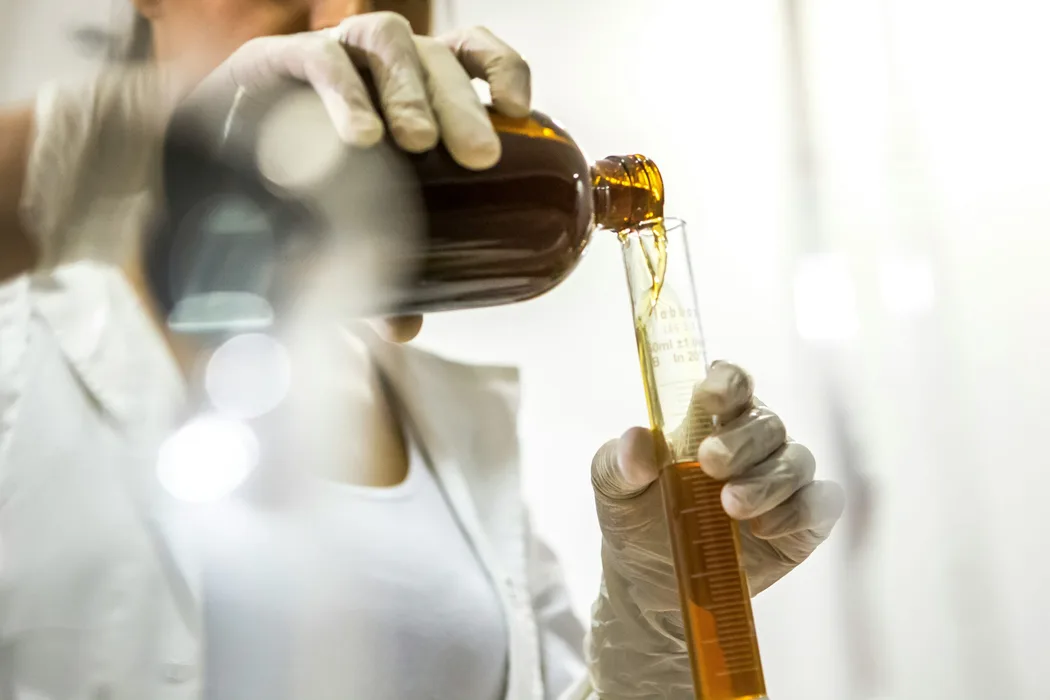
Liquid biopsy
Liquid biopsy is a type of blood test that can detect cancer cells or DNA that circulates in the blood.
Unlike traditional biopsies that require surgical removal of tissue samples from tumors, liquid biopsies are less invasive and can be done more frequently and easily. Liquid biopsies can provide valuable information about the genetic characteristics of tumors, such as the presence of specific mutations or biomarkers that can guide the selection of personalized cancer therapies. Liquid biopsies can also monitor the response to treatment and the emergence of resistance by tracking the changes in the tumor DNA over time.
Read more
Liquid biopsies and traditional biopsies have different advantages and limitations, and they are not interchangeable. Liquid biopsies are less invasive and can capture the heterogeneity and evolution of tumors, but they may have lower sensitivity and specificity than traditional biopsies. Traditional biopsies can provide more accurate and comprehensive information about a specific tumor, but they may be more risky and painful for the patient, and they may not reflect the changes in the tumor over time.
Therefore, the two methods can complement each other and provide a more complete picture of the cancer. Liquid biopsies are best used for screening & identifying mutations in metastatic cancer and tracking changes in the mutations for treatment. Traditional biopsies are still needed for the initial histological diagnosis of a tumor and to confirm the results of liquid biopsies.
Our liquid biopsy solutions provide the most advanced tools for monitoring purposes and detection of new mutations that can affect treatment.

Gut microbiom analysis
Gut microbiome analysis is the study of the diverse and dynamic community of microorganisms inhabiting the human gastrointestinal tract.
These microorganisms, mainly bacteria, archaea, fungi, and parasites, have important roles in digestion, immunity, metabolism, and health. Gut microbiome analysis can reveal the composition, function, and interaction of these microorganisms, as well as their association with various diseases and conditions.
Read more
Gut microbiome analysis can be performed using different methods, such as culture-based, microscopy-based, or molecular techniques. However, the most widely used and advanced method is next-generation sequencing (NGS), which can generate large amounts of data on the genomic, transcriptomic, proteomic, and metabolomic profiles of the gut microbiota. NGS can also identify potentially important functional members of the gut microbiota, such as those that produce beneficial or harmful metabolites, modulate the immune system, or interact with pathogens.
Gut microbiome analysis can provide valuable insights into the role of the gut microbiota in human health and diseases, such as obesity, diabetes, inflammatory bowel disease, cancer, allergies, and neurological disorders. By understanding the factors that influence the gut microbiota – such as diet, lifestyle, genetics, environment, and medication – gut microbiome analysis can also help us design personalized interventions to modulate the gut microbiota and improve health outcomes. For example, probiotics, prebiotics, synbiotics, fecal microbiota transplantation, and dietary modificationa are some of the strategies that can alter the gut microbiota and restore its balance and function.
Our gut microbiome analysis provides a state-of-the-art toolset to understand and alter your overall health.
